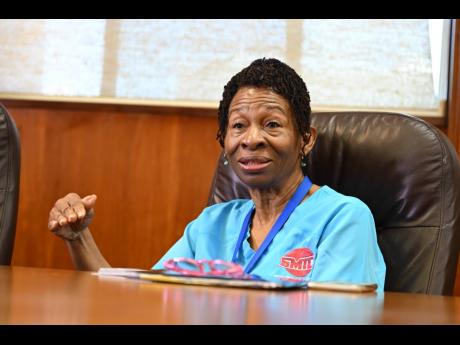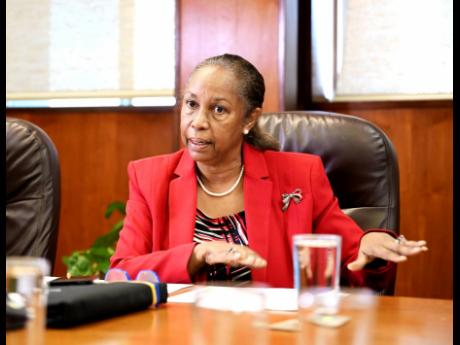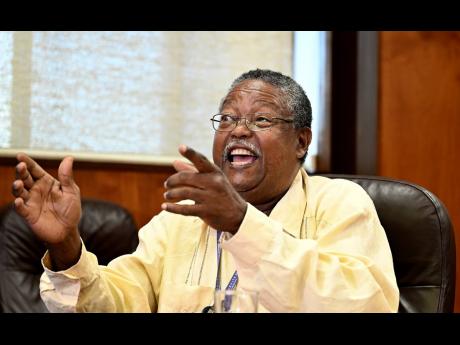Nursing accreditation crisis
Degree granting institutions ignore regional accrediting body
Training institutions offering degree programmes for nursing in the Caribbean have not applied for accreditation from the regional accrediting body – Caribbean Accreditation Authority for Education and other Health Professional (CAAM-HP) the internationally recognised body which set standards.
CAAM-HP is charged to accredit degree level programmes in medicine, dentistry, veterinary medicine, nursing and other health professions offered by schools in participating countries of CARICOM. Its stamp of approval means that that all such programmes offered are standardised and recognised locally, nationally and internationally as being of the highest standard.
But none of the nursing schools has applied to be accredited.
This means that although Jamaican nurses and their services are in high demand in the United States, Canada and the United Kingdom, CAAM-HP has not been able to interrogate the programmes offered. Lorna Parkins, the executive director CAAM-HP said the body is passing no judgement on any degree granting nursing programmes offered. She acknowledged too that nursing professionals from Jamaica are in high demand. However, the accrediting body has been ignored by all degree granting nursing institutions region wide since its establishment in 2003. “Let me put it this way. There has been no progress in getting the programmes accredited across the region. There has been no application from any institution for the nursing programme to be accredited. There have been no takers and your guess is as good as mine the reason or reasons why not,” she said on Friday.
An internationally known and Pan American Health Organization (PAHO) recommended consultant helped CAAM-HP to develop standards and consultations were also held with nursing bodies’ representatives in the region. “None of the degree programmes have been accredited as none of the institutions have applied for accreditation and it’s not because we have not reached out by having workshops. The medical schools have no problem. The veterinary schools have no problem and there are a number of medical schools in the region,” the executive director reiterated. “On request, CAAM-HP also assesses education programmes, for the purpose of accreditation, of schools in Caribbean countries outside the CariCom) framework, including the Dutch Caribbean and the Dominican Republic. The mission of CAAM-HP is undergirded by the principles of professionalism, integrity, accountability, transparency and collaboration ... ,” she cited as explained in a position paper to a conference in Glasgow, England. The Nursing Council of Jamaica has approved nine educational programmes for registered general nurses in Jamaica. They are Excelsior Community College, School of Nursing; Northern Caribbean University; Caribbean School of Nursing: University of Technology, Papine Campus; Caribbean School of Nursing: University of Technology, Montego Bay Campus; University of the West Indies School of Nursing, Mona Campus; University of the West Indies School of Nursing, Western Campus; Brown’s Town Community College School of Nursing; Knox Community College School of Nursing, and Sigma College of Nursing and Applied Sciences.
About 500 nurses graduate annually and CAAM-HP accreditation is accepted by state and provincial bodies in the United States and Canada. Parkins said CAAM-HP has been asked to validate credentials for nursing presented overseas, but are unable to do so. “You have credentialing agencies in North America where people go whether to further their studies or whatever. From time to time they check with us to find out if the programme is accredited by CAAM-HP. The answer is no of course. And I went to a conference once and I made that observation emphasising the importance of accreditation from the appropriate agency. And two nursing persons who are there said it was fake news,” Parkins told The Gleaner.
She said her disclosure was dismissed.
The regional body is now working around the clock to fast-track programmes for accreditation that were postponed because of the COVID-19 outbreak. The body is also aware that nurse training institutions were bypassing it and receiving clearance to work overseas. “Honestly, what can we do about that?” she asked.
KNOTTY ISSUE
Beverley Dinham Spencer is the owner, and operator of SMTC Career Institute which trains Personal Support Workers (PSWs) and nursing assistants. She told a Gleaner Editors Forum on Wednesday that when she contacted CAAMP-HP they said they were not ready to make any assessment. SMTC is not a degree granting institution. Dinham Spencer said she was in limbo trying to get accreditation, and no one could advise her of the path or process. But Parkins said CAAM-HP has no jurisdiction over institutions which offer allied nursing services such as Personal Support Workers (PSW) and nursing assistants’ training. Operators of such programmes are in limbo as there is currently no pathway to accreditation and some have been seeking a direct route to companies in North America and the United Kingdom. They have aligned themselves to foreign agencies for support to get their graduates employed overseas. The Editors Forum was also told that the American Medical Association (AMA) has told stakeholders that as at 2023 it will not accept medical workers from the region whose programmes are not accredited CAAM-HP. However Mrs Parkins said the deadline has been revised upwards to 2024 but only refers to medical students who wish to continue their studies and practice in the United States. She said it was also specific, but not exclusive to “US students who pursued their medical training outside of the country.” These students must get certification from the Education Commission for Foreign Medical Graduates to certify that they have graduated from a programme that has international recognition. University of the West Indies (UWI) trained doctors are so recognised and that recognition is required for them to continue studies, and to work in the USA. A review for that programme will be conducted in the next two weeks, she said. Workforce development consultant, Dr Carolyn Hayle insisted that CAAM-HP was the recognised quality assurance body in the Caribbean. She said the University College of Jamaica (UCJ) or the Nursing Council of Jamaica (NCJ) examines industry standards, but were not accrediting bodies. “The accreditation is of particular importance as it allows for the academic movement and the transfer of credits for someone who has done studies other than nursing and wants to do nursing ... It is a knotty point. A lot of people don’t want to go to CAAM-HP because they are very strict and the standards are very high ... ,” she stated inter alia.
Former head of the UWI School of Nursing Dr Don Steve Weaver said in 2019 CAAM-HP began speaking with that body about accreditation. He said the body was not functional. “CAAM-HP is not functional yet. Many of these allied schools are not even structured under the functional part of the (Nursing) Council to ensure that the structure and function is in keeping with what should be. Yes it is a mess. And we can’t even begin to talk about CAAM-HP if we have not even gotten the basic standards in place at a professional level,” Dr Beaver said.
He was weighing in on the confusion in the unregulated industry which has seen ‘fly-by-night schools popping up and offering para-nursing services.
Dr Hayle rejected the assertion that it was not functional, noting that they have been in existence for more than a decade. “I will just put it on the table. It is a knotty issue. Similarly they had a major fight with the dentists, and a major fight with the vets and I guess they are not ready to take on the nurses yet. But the fight has to be had,” she declared.
She said the framework exists, but bodies and entities were being ‘territorial’ to which Dr Weaver agreed. “Nursing is very territorial. Very territorial. It means that nurses and nursing really protects their own. The term nursing is defined and nobody can call themselves a nurse unless they have been certified,” he stated.
WORKAROUND
Until an accreditation path is seamlessly created entities must find a work around. At least one individual is providing that route. Patrick Beckford runs a credentialing agency in the USA and reached out to one local entity whose credentials he trusted. “I was able to negotiate with a company that wants to engage Caribbean personnel. The work-around is that they would take the folks up based on the qualification, after doing research on the training institutions. This is both for registered nurses and nursing assistants. In New Jersey they must pass state exams to be licensed,” Beckford told The Gleaner. Licensing in New Jersey he said may allow someone to practise in other states through reciprocity. “They say to the people they are taking that we will take you for three months, train you and help you your get your licence. It’s an arrangement for a fixed amount of time. That’s the work around and it is for both registered nurses and nursing assistants,” he explained. “What I encourage the registered nurses to do is to go online and start practise for the National Council for Licensure Exam –RN (NCLEX-RN), it’s the exam for entry level nursing practice,” he explained. Beckford said despite the lack of accreditation it will not stop the migration of nurses and others offering allied nursing services. Health Minister Dr Christopher Tufton said more than 2,500 nurses have left their jobs in the last four to five years primarily to migration and the Editors Forum was told that between now and 2025 the region will need to train five times the number of nurses it currently graduates per year. “I understand what the CAAM-HP is trying to do here, but there is a massive shortage of nurses and other allied nursing services here. So I am not going to allow the current impasse it seems between CAAM-HP and the nurses to stop me from getting health professionals. Once we can find suitably qualified persons for the positions then there is a work around. That’s what I am doing and that’s what I will encourage other persons to do ,” Beckford said. Individuals are also required for work as caring partners, similar to PSW for both institution and home care.



